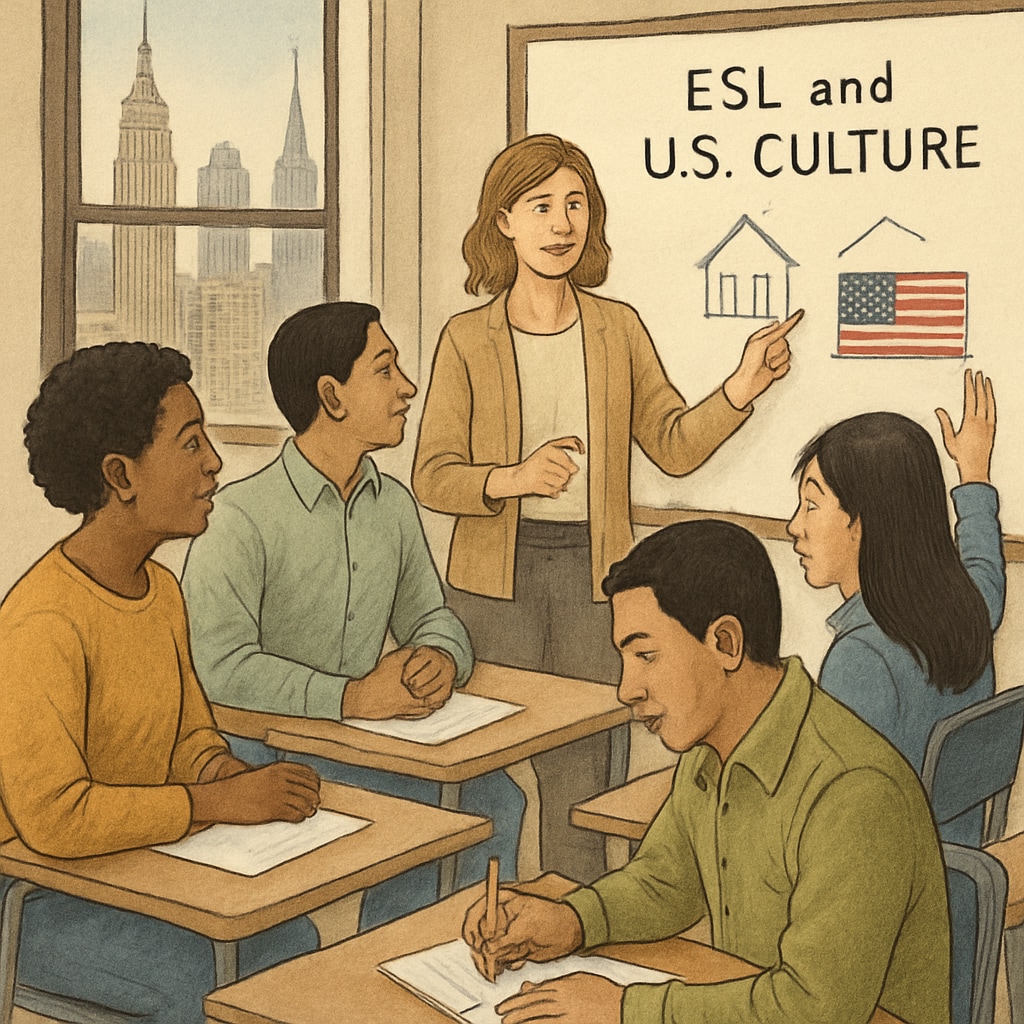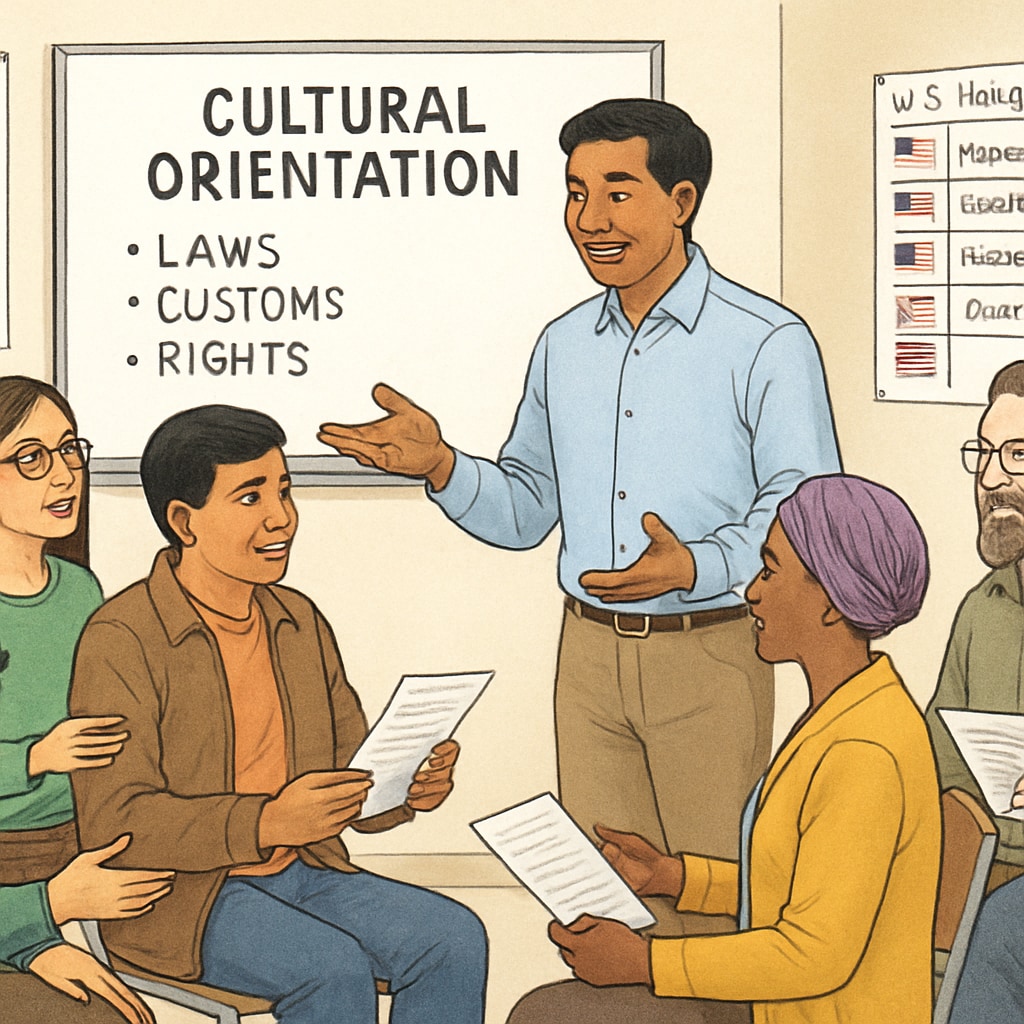For immigrants navigating a new cultural landscape, adult education, cultural adaptation, and foundational knowledge form the cornerstone of successful integration. Adjusting to life in a Western country like the United States involves understanding not only the language but also the societal norms, values, and traditions. In cities like New York, adult education programs are designed to bridge this gap, offering immigrants the tools they need to integrate effectively while building a sense of cultural identity.
The Role of Adult Education in Cultural Integration
Adult education plays a pivotal role in helping immigrants transition into new communities. These programs often focus on teaching English as a Second Language (ESL), providing cultural orientation, and covering key foundational knowledge about Western society. For example, understanding workplace etiquette, legal rights, and social expectations is essential for day-to-day life. Programs in New York City, such as those offered by the New York Department of Education, are tailored to meet the specific needs of immigrant adults.
One of the most significant challenges immigrants face is overcoming language barriers. ESL courses not only improve communication skills but also foster confidence, enabling immigrants to engage in their communities and workplaces. Additionally, cultural orientation sessions help newcomers understand societal norms, from greeting customs to public transportation etiquette.

Cultural Adaptation: More Than Language Learning
Cultural adaptation encompasses far more than learning a new language. It involves developing an understanding of a new country’s history, legal systems, and unwritten social rules. For instance, immigrants in the U.S. often need guidance on navigating healthcare systems, understanding taxation, or even participating in local elections. This foundational knowledge empowers them to be independent and confident in their new environment.
Programs like those run by UNHCR focus on holistic approaches to adaptation. These courses address cultural nuances and provide practical knowledge, such as how to use public services or access community resources. This holistic approach ensures that cultural adaptation goes beyond survival skills, fostering long-term integration and self-sufficiency.
Strategies for Implementing Effective Adult Education Programs
Designing effective programs for adult immigrants requires careful consideration of their unique needs and challenges. Below are some strategies that have proven successful:
- Flexible Scheduling: Many immigrants work long hours, so offering evening or weekend classes ensures greater accessibility.
- Interactive Learning: Incorporating role-playing, group discussions, and real-life scenarios makes learning engaging and practical.
- Community Partnerships: Collaborating with local organizations allows programs to address specific community needs and provide resources like childcare.
- Cultural Sensitivity: Recognizing and respecting the diverse backgrounds of participants fosters an inclusive learning environment.

Building Cultural Identity While Adapting
One of the challenges immigrants face is the balance between adapting to a new culture and preserving their own cultural identity. Adult education programs can play a crucial role in this process by encouraging participants to share their experiences and traditions while learning about their new environment. For example, cultural exchange activities within classes can foster mutual respect and understanding among students from diverse backgrounds.
Moreover, having a strong cultural identity can boost confidence, helping immigrants navigate their new environment without losing their sense of self. Programs that focus on both integration and cultural preservation create a supportive space where participants feel valued and empowered.
Practical Tips for Immigrants Seeking Educational Resources
If you are an immigrant looking for adult education resources, here are some practical tips to help you get started:
- Research programs offered by local community centers, libraries, and educational institutions.
- Look for free or low-cost classes, as many organizations provide subsidized programs for immigrants.
- Join local immigrant support groups to learn about resources and share experiences.
- Take advantage of online platforms offering free courses in language learning and cultural adaptation.
By actively seeking out these resources, immigrants can gain the skills and knowledge they need to thrive in their new environment.
In conclusion, adult education, cultural adaptation, and foundational knowledge are vital for immigrants aiming to integrate into Western societies. Programs in cities like New York provide essential resources that empower individuals to navigate their new lives while fostering a sense of belonging. With the right support, immigrants can build bridges between their cultural heritage and their new communities, creating a foundation for long-term success.


